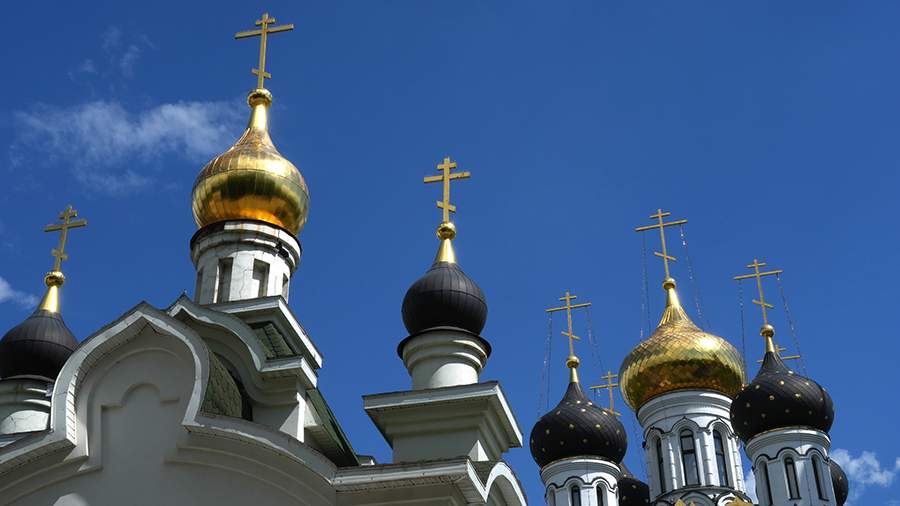February 16 - Pochinki: traditions, omens and prohibitions of the folk holiday

Every year on February 16, the Orthodox Church honors the memory of St. Simeon the Hospitaller and the prophetess Anna. In the folk calendar, the day immediately following the Purification is called Pochinki and symbolizes the beginning of preparations for spring and summer field work. In 2025 it falls on Sunday. On the traditions and signs of the holiday read in the material "Izvestia".
Pochinki - 2025: the history of the holiday
The feast of Simeon the Hospitaller and Anna the Prophetess is celebrated the day after the Purification of the Lord - a large church celebration dedicated to the meeting of these saints with the baby Jesus.
Simeon was invited by King Ptolemy II Philadelphus to Alexandria from Jerusalem among 72 scholars to translate the Holy Scriptures into Greek. The righteous man was working on the text of the book of the prophet Isaiah when he discovered what he thought was an error. When he read, "Behold, the virgin shall conceive and bear a Son," he decided to correct the word "virgin" to "wife". At that moment an angel appeared and held his hand, predicting that what was written would be exactly fulfilled, and the Savior would be "born of the pure and pure virgin", and the saint himself would not leave this world until he saw the Messiah.
In the life of Simeon it is said that he lived in waiting for about 300 years before the meeting with the Son of God took place. When the Virgin Mary and Joseph the Betrothed, following the ancient Jewish law, brought Jesus to the temple on the 40th day after his birth, the holy elder immediately recognized him as the Messiah. Taking the child in his arms, he said in reverence: "Today you release your servant, O Lord."
Anna the Prophetess was a widow working at the temple in Jerusalem. After the death of her husband, she devoted her life to fasting, prayer and service to God. For her righteous life the Lord rewarded her with the gift of prophecy. The saint believed that the Savior would appear on earth and waited for his appearance. Having met the Virgin Mary and Christ in the temple, the prophetess worshipped the Divine Child and went to Jerusalem to announce to people the birth of the Son of God.
Theologically, this event is seen as the intersection of the Old Testament with the New, and the encounter of mankind with God. It is believed that each believer experiences his personal Purification when he crosses the threshold of the temple for the first time.
Traditions and rituals of Pochinok, celebrated on February 16
In Russia, the day of the memory of Simeon and Anna was called Pochinky. He symbolized the transition from winter to spring. The name of the holiday did not appear by chance. The Slavs believed that timely preparation for spring field work is a guarantee of a productive year.
On this day it has long been customary to put the house and household in order. Men were engaged in repairing equipment, preparing for spring agricultural work, carefully checked the harness. There were many sayings connected with this tradition: "Pochinki is a wake for the plow", "In Pochinki grandfather gets up at dawn - fixes the summer harness and the century-old harrow".
Women were busy with household chores, cleaning the house, going through things, darning clothes and putting the trunks in order.
Also on February 16, Orthodox believers used to go to church to pray to St. Simeon and St. Anna for the health of newborns, the sending of children and healing from illnesses.
There was a tradition to serve on the table on this day salamata - a floury porridge made of roasted buckwheat, wheat, rye or oat flour, boiled with boiling water and steamed in the oven. Ghee, butter, garlic and herbs were added to the dish for flavor.
It was also necessary to give the treat to the housekeeper to ensure peace and quiet in the house. Late at night, porridge, milk, a piece of cake or bread was left in a secluded place for him.
Ancestors believed that in Pochinki unclean force can drag away horses or bring diseases on them, so to the animals as an amulet tied to the owner's shoes or whip.
What you can and can't do during the celebration of Pochinki
Honest labor was encouraged in Pochinki. Therefore, in the old days, all family members, including the elderly and children, should get up at first light and get to work: repairing, cleaning, baking, caring for pets. For this reason, it was forbidden to sleep too long, be lazy or put things off. Idleness was considered a bad omen - it could lead to failures in the economy.
February 16 should not wear black clothes, so as not to bring misfortune and grief to the family. Lending money or picking up lost coins was also considered bad luck: it could lead to financial problems.
Among the prohibitions of this day - quarrels, especially between lovers. It was believed that they could lead to protracted conflicts.
Folk omens of February 16
On Pochinki our ancestors observed nature, believing that the weather on this day can predict what the spring and summer will be like. A windy day promised a rapid thaw, and frost on the trees - a cold snap. A snowfall predicted that the coming summer would be rainy.
Pets could also tell something about the weather by their behavior. For example, if cats slept longer than usual, it was believed that this heralded a hot summer. And if they scrubbed the floor, a snowstorm was expected.
Since February 16, it was customary for people to count seven morning frosts, after which the spring will finally come.
Earlier "Izvestia" told about the traditions and signs of the winter holiday of Nikita the Fireman.
Переведено сервисом «Яндекс Переводчик»


